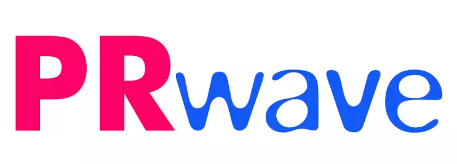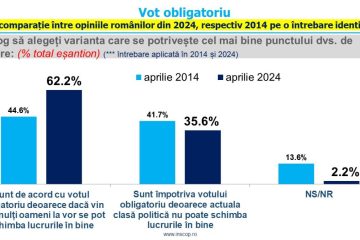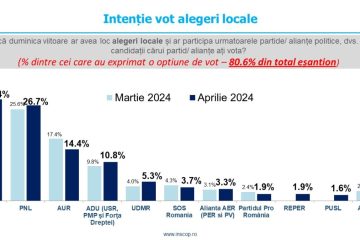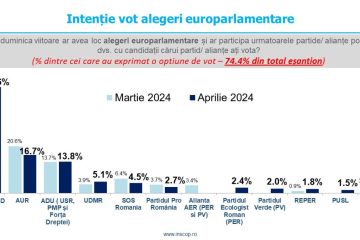 The European Union has a small budget, but with a big impact for Europe’s citizens. The Commission’s proposal for a multi-annual budget for 2014-2020 responds to today’s concerns and tomorrow’s needs. It focuses on priority funding at the EU level that provides true added value. For instance, a Connecting Europe Facility that funds cross-border projects in energy, transport and information technology to strengthen the backbone of our internal market; significantly more money for Research and Innovation to invest in our competitiveness; and more funds for Europe’s youth – these are just some of the new elements in the Commission proposal. At the same time, this innovative EU budget remains focused: The overall amount proposed for the next seven years is €1,025 billion in commitments (1.05% of the EU GNI) and €972.2 billion (1% of EU GNI) in payments.
The European Union has a small budget, but with a big impact for Europe’s citizens. The Commission’s proposal for a multi-annual budget for 2014-2020 responds to today’s concerns and tomorrow’s needs. It focuses on priority funding at the EU level that provides true added value. For instance, a Connecting Europe Facility that funds cross-border projects in energy, transport and information technology to strengthen the backbone of our internal market; significantly more money for Research and Innovation to invest in our competitiveness; and more funds for Europe’s youth – these are just some of the new elements in the Commission proposal. At the same time, this innovative EU budget remains focused: The overall amount proposed for the next seven years is €1,025 billion in commitments (1.05% of the EU GNI) and €972.2 billion (1% of EU GNI) in payments.
Statement by President Barroso.
In the current times of fiscal austerity all across the EU, the Commission has presented an ambitious but realistic proposal for the next MFF, explains commissioner for financing programming and budget Janusz Lewandowski: through smart reallocation of the budget we have created room to finance new priorities such as cross-border infrastructure for energy and transport, research and development, education and culture, securing external borders and strengthening our neighbours to the South and East. Furthermore, we have modernised virtually all our policies by simplifying our programmes and by putting more conditionality on how funds are being spent.
(see full table in annex)
For growth and for jobs
A new fund, the Connecting Europe Facility, aims to boost the pan European value of infrastructure projects. With € 40 billion at its disposal, and another €10 billion from the Cohesion Fund, it includes a preliminary list of transport, energy and ICT projects that bring more interconnectivity across Europe. These growth enhancing connections will provide better access to the internal market and terminate the isolation of certain economic "islands". The Connecting Europe Facility offers opportunities for using innovative financing tools to speed up and secure greater investment than could be achieved only through public funding. The Commission will promote the use of EU project bonds to bring forward the realisation of these important projects.
Sustainable economic growth starts in our towns and regions. The substantial amounts for economic, social and territorial cohesion (€376 billion for the whole period) will be more closely linked to Europe 2020 objectives. A new category of ‘transition regions’ will be introduced. New conditionality provisions will ensure that EU funding is focussed on results and creates strong incentives for Member States to ensure the effective delivery of the Europe 2020 objectives. Partnership contracts will be concluded with each Member State to ensure mutual reinforcement of national and EU funding.
The Commission also proposes to strengthen programmes for education and vocational training. Investing in young people is one of the best business plans. In order to overcome the fragmentation of current instruments it proposes to create an integrated programme of €15.2 billion for education, training and youth, with a clear focus on developing skills and mobility.
Investment in research and innovation in the next seven years will be significantly increased. A common EU strategy called "Horizon 2020" worth 80 billion € will boost Europe’s global competitiveness and help create the jobs and ideas of tomorrow. It will gather all projects in this area to eliminate fragmentation and make sure EU -funded projects better complement and help coordinate national efforts.
For a greener, more modern agriculture
With €371.72 billion, a modern Common Agricultural Policy, which is a truly common European policy, remains of strategic importance for our economy and environment, safe and healthy food and the development of rural communities. It illustrates how one euro can and must serve many goals. 30% of direct support to farmers will be conditional on "greening" their businesses. The Commission also proposes to open the European Globalisation Fund to farmers. Also, the discrepancy in direct payments between Member States will be reduced.
For a safer Europe
Building a safer Europe means improving our environment and protecting our climate. The Commission proposes to mainstream these across the board. The Commission intends to increase the proportion to at least 20% for climate related spending, with contributions from different policy fields subject to impact assessment evidence.
The Commission also proposes to invest €4.1 billion in European security to fight crime and terrorism and €3.4 billion in migration and asylum policies, which are crucial for our competitiveness and social cohesion. Both funds will have an external dimension to work with third countries.
For a stronger Europe in the world
This budget will also help make Europe count in the world through an increased external relations budget of €70.2 billion. Shifting alliances and emerging new powers mean that Europe must do more to make its voice count. € 16 billion will be allocated to our Neighbourhood Policy to promote democracy and prosperity around Europe. We will also continue delivering on our commitments to help the poorest in the world. The Development and Cooperation Instrument (DCI) will receive €20.6 billion to focus on poverty eradication and to maintain our pledge to the Millennium Development Goals (MDGs).
Better resources for the EU budget
The new multi-annual EU budget will have more transparent, fairer resources and will reduce and simplify Member States’ contributions. The Commission proposes new own resources to the existing ones, as foreseen by the Treaty. The aim is not to increase the EU budget, but to put it on a sounder footing and lower Member States’ direct contributions.
The new own resources would be a financial transaction tax and a new modernized VAT. Simultaneously, the current VAT-based resource (a portion of the national VAT collected by Member States) would be abandoned.
The Commission also proposes to simplify the existing correction mechanisms that apply to a number of Member States. This will be done through a lump sum gross reduction on their GNI payments.
Administration 2014-2020
Currently, administration expenditure accounts for only 5.7% of the total EU budget. The Commission proposes that there be no increase of administrative expenditure for the next financial period. In parallel, building on the 2004 staff reform (which has already saved € 3 billion and will save 5 billion more by 2020) the Commission is proposing to further modify the Staff Regulations for EU officials.
For more information:
The communication is available on the Multiannual Financial Framework website
MEMO/11/468: Multiannual Financial Framework (MFF): Questions and answers
MEMO/11/469: Money where it matters – how the EU budget delivers value to you
MEMO/11/459: Myths about the EU budget and the Multiannual Financial Framework
SPEECH/11/487: Remarks by President Barroso on the Commission’s proposals for the 2014-2020 Multi-Annual Financial Framework

Contacts :
Pia Ahrenkilde Hansen (+32 2 295 30 70)
Mark Gray (+32 2 298 86 44)
Jens Mester (+32 2 296 39 73)
Karolina Kottova (+32 2 298 70 19)
Patrizio Fiorilli (+32 2 295 81 32)




